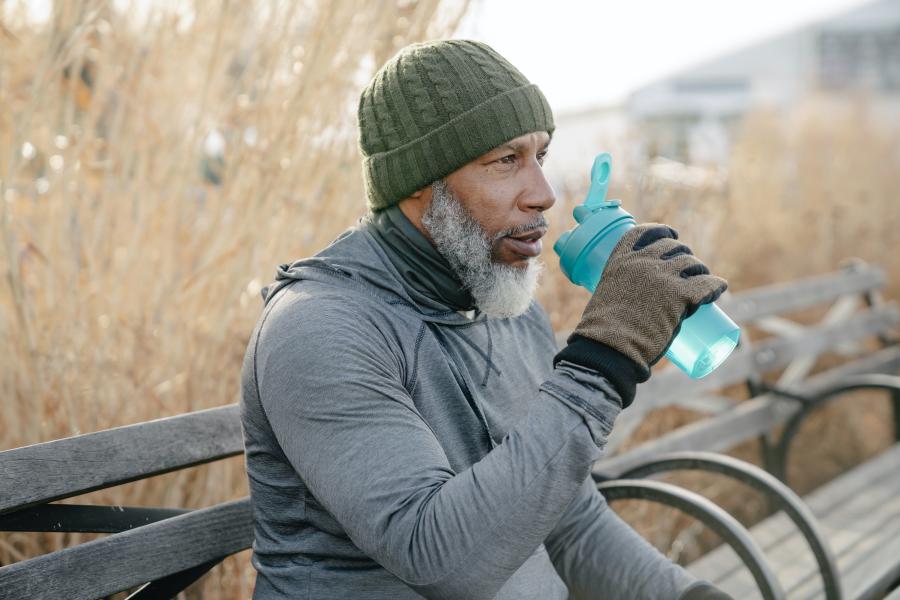Staying Hydrated During Winter

We're all familiar with the need to keep hydrated during hot weather. But hydration is just as important during winter because cold air means dry air.
Warm air holds more moisture than cooler air. The colder the air, the less water it can hold before the water condenses. This is why you can see your breath on a cold day. It’s also why cold air has low humidity.
Cold temperatures also mean the heat is cranked up at home, in the office, and elsewhere indoors. The heat generated indoors from HVAC systems and space heaters add warmth but not moisture, resulting in lots of warm, dry air.
And in winter, we tend to go for longer periods without water. This is because signs we typically associate with dehydration, like sweat and thirst, are less noticeable in winter as compared to summer. But things like cracked skin, a dry throat or nose, or chapped lips can also be signs of dehydration.
The body’s need for water is the same year-round. Our bodies are about 60% water and the water we consume regulates body temperature and blood pressure, keeps muscles and joints moving, moves waste out of the body, and aids in digestion.
Recommendations vary depending on weight, age, and activity level, but a general guideline for how much water you should consume is 8, 8-ounce glasses each day. Another guideline is to divide your weight by 2 and drink that number in ounces. For example, a 150-pound person would need 75 ounces (150/2) of water per day. Talk to your doctor to be sure that you’re drinking the right amount of water for your body type and activity level.
Here are some more tips to help you stay hydrated in winter:
- Carry a reusable water bottle with you that you can easily refill with tap water. You're more likely to drink water if it's with you. And you’ll save money and help the environment by filling up your water bottle throughout the day rather than buying bottles of water.
- Don't rely on thirst alone. Thirst can be one measure of hydration but it's not the first means of feedback, so rehydrate before you feel too thirsty.
- Make hydration an all-day event. Sipping water throughout the day is a more effective way to stay hydrated than drinking a large volume all at once.
- Hot drinks count. Stay warm and hydrated with herbal tea. Or try infusing hot water with fruit or herbs for added flavor without added sugar.
- What you eat counts, too. Eat foods with high water content like cucumbers, berries, citrus, melon, greens, and tomatoes. You can eat these foods as a snack or incorporate them into your meals.
- Drink alcohol and caffeinated beverages in moderation. They can have a diuretic effect, pulling water from the body rather than replacing it.
